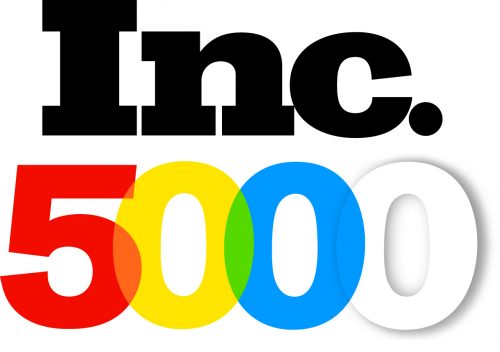Have you felt the icy grip of credit card debt tightening around your finances? Do you feel like you’re drowning in the rising levels of monthly payments, interest rates, and late fees?
If so, you’re not alone: in 2016, the average American household carried over $16,000 in credit card debt.
This is often spread over several cards, which can you bring hundreds of dollars in minimum payments each month.
Luckily, credit card debt consolidation might be able to bring you some much-needed relief.
But how does debt consolidation affect your credit score?
Keep reading as we explore that question.
What Does Credit Card Debt Consolidation Do?
Before we look at how debt consolidation affects your credit score, it’s important to understand what exactly a debt consolidation is.
When you use credit cards, every dollar that you don’t pay back by your next statement needs to be paid back with interest.
With many consumers using multiple credit cards and average interest rates peaking over 19%, that amount can add up in a hurry. Especially when you owe hundreds of dollars a month across your cards.
A credit consolidation combines all of your credit cards into a single payment. Then, instead of your multiple credit card payments, you make a single payment to the consolidation agency.
This new payment also carries a much lower interest rate than the original credit cards, making it much easier to manage.
Types of Credit Consolidation
There are a number of different methods you might use to consolidate your credit card payments.
Personal Loan
The most common method of credit consolidation is a personal loan.
These loans may be either secured—meaning it requires collateral—or unsecured, and may be found through a variety of banks, lending companies, peer to peer lending groups, or other agencies.
There are also a number of companies that offer personal loans specifically for debt consolidation.
When using a personal loan for a credit card consolidation, you borrow the full amount that you owe to the credit card companies. You then pay off your full amount.
After that, you make a single payment to your lender instead of one payment for each card.
Balance Transfer
Another popular method of debt consolidation is a balance transfer.
Many credit card companies offer free balance transfers with 0% interest for an introductory term. If your credit score is high enough, you may be eligible for one of these cards.
After being approved, you can transfer your existing credit amounts to this new card. This allows you to reduce your monthly payments to a single card and eliminates interest for the duration of the term.
However, if you miss a payment or if you cannot pay off your balance within the term, you will begin accruing interest again. Then, you’re back to where you started.
Also, if your existing cards are close to maxed out, the new card’s credit limit may not be high enough to consolidate all of your cards.
A balance transfer isn’t for everyone, though. If you’re especially prone to misusing credit cards, the temptation of a new credit card with a non-maxed credit limit may be too much for you to handle.
Friends-and-Family Loan
You can also take out a loan from a friend or family member.
This may give you access to more money at lower interest rates than a conventional bank, but it may cause tension in those relationships.
What Does Your Credit Report Say?
While many people are concerned about their credit score, many people don’t know what that number actually means.
Credit scores range from 300 to 850, with anything over 700 being considered good. Most Americans’ credit scores fall between 600 and 750.
In the most basic terms, this number communicates your creditworthiness to potential lenders. The higher your score, the less of a risk you are to lend money to.
When you apply for a new loan, such as a mortgage, car loan, personal loan, or even a new credit card, the lender will look at your credit score to decide on terms.
A low credit score may not necessarily mean you won’t be able to find a lender willing to give you money, though. It might just mean that your lender will offer a higher interest rate.
Do Credit Card Consolidation Loans Hurt Your Credit?
There are several things that can bring your credit score down. One of them is a hard inquiry.
When you apply for a loan or balance transfer card, your lenders will want to take a close look at your credit score to see the details of your financial history. This inquiry alone can take as much as five points off of your credit score.
Also, some lenders may charge a prepayment penalty if you pay off your balance early. This is most common among longer-term loans like mortgages, but some credit cards may also carry similar penalties.
While these things may lower your credit score slightly, keep in mind that your FICO score is also damaged by using too much of your available credit. The points you lose through a credit consolidation may be evened out by paying off your balance.
What’s Better: A Good Credit Score or Debt Resolution?
There are indeed instances where credit card debt consolidation can have a negative effect on your credit score, but it’s usually temporary. Once you get 6-months to a year of timely payments under your belt you should see your credit score bounce back significantly and actually surpass where it was at the time you consolidated your debt.
When you pay off your debt this not only improves your credit score, but also your debt to income ratio, which gives you the ability to then qualify for better loans, interest rates and terms in the future.
A good credit score is not enough to qualify you for the best loans if you are loaded with debt and your debt to income ratio is insufficient. Having a good debt to income ratio is often more important than just a good credit score when qualifying for the best loans.
At the end of the day, you have to ask yourself: would you rather have a slightly higher credit score with no real benefit or the relief of finally paying off your debt and all of the benefits that follow? If you’ve been crushed under the weight of monthly payments, a temporarily lower FICO score is a small price to pay for relief from your debts and all of the future benefits.
Are you looking for options to consolidate your credit card debt? Contact us today to find your options.




